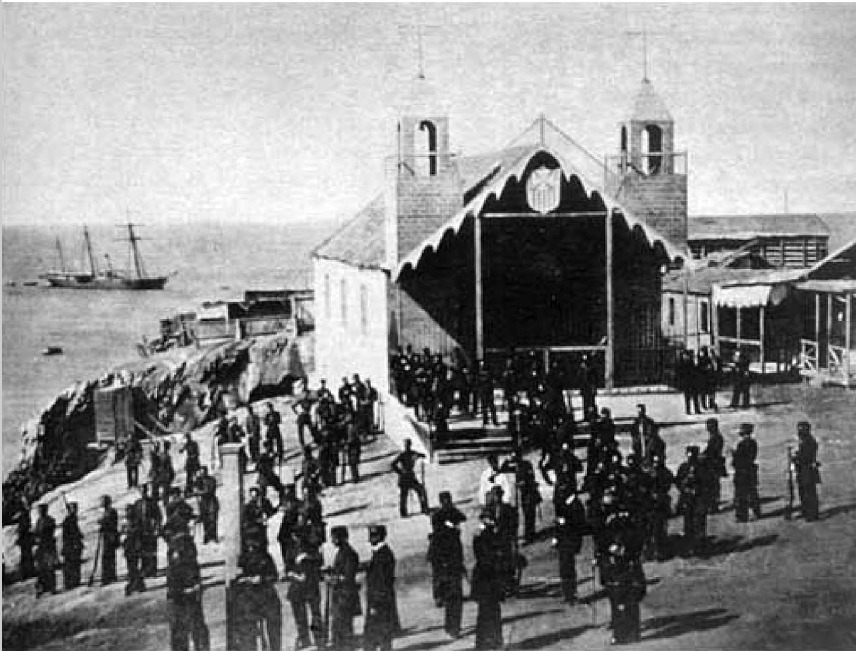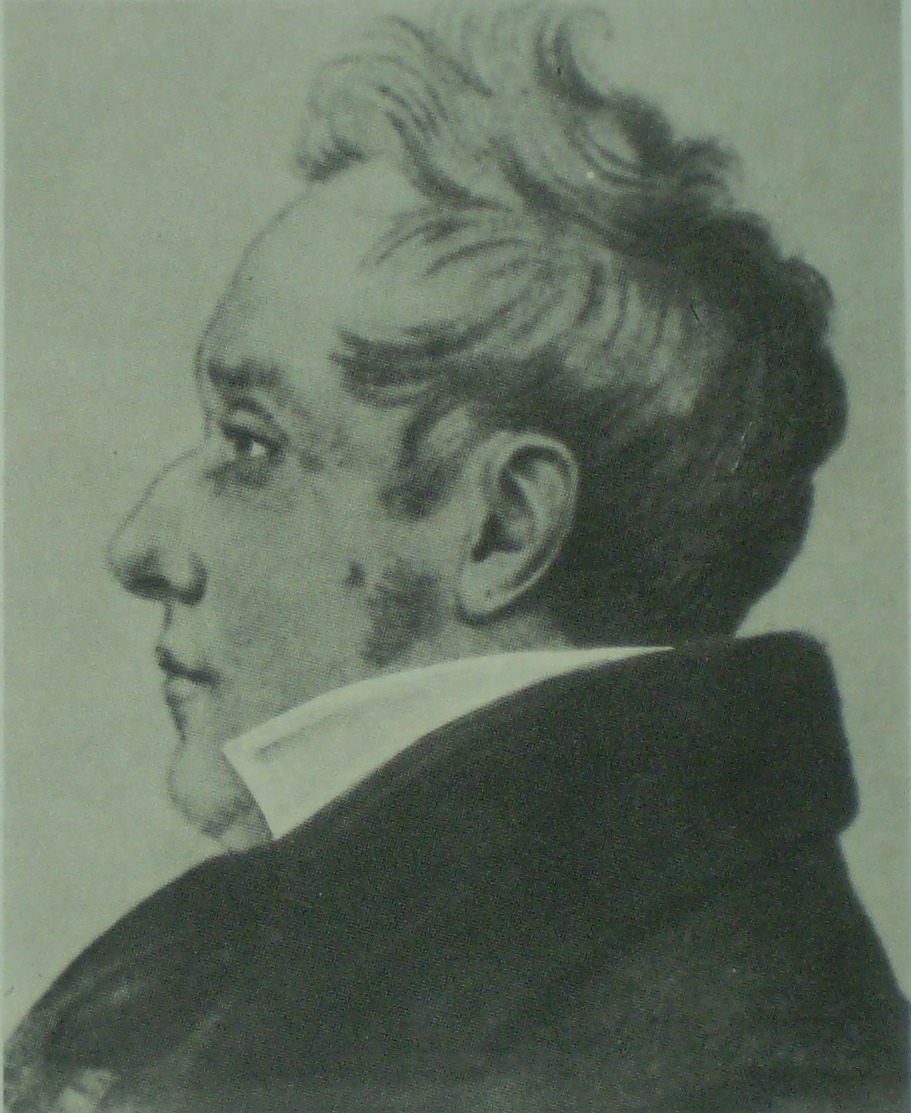|
Manuel Ignacio De Vivanco
Manuel Ignacio de Vivanco Iturralde (15 June 1806 – 16 September 1873) was a Peruvian politician and military leader who served as the President of Peru from 1843 to 1844. He was born in Lima, Peru. He led part of the Peruvian forces in the campaign against the reunification of Peru-Bolivian Confederacy. During the second administration of Agustín Gamarra, he was appointed prefect of Arequipa. In 1843, he rebelled against Juan Francisco de Vidal, but was defeated and fled to Bolivia. He returned to Peru then and subsequently became president in 1843 under the title "Supreme Director of the Republic". In the name of president Juan Antonio Pezet he signed the Vivanco–Pareja Treaty on 27 January 1865, which was one cause of the Chincha Islands War. From April to September 1865, he served as Prime Minister of Peru. He also served as Peruvian representative in Chile. See also * Politics of Peru The politics of the Republic of Peru takes place in a framework of a Unit ... [...More Info...] [...Related Items...] OR: [Wikipedia] [Google] [Baidu] |
Juan Francisco De Vidal
Juan Francisco de Vidal La Hoz (April 2, 1800 in Lima, Peru – September 23, 1863 in Lima) served as the 8th President of Peru The president of Peru ( es, link=no, presidente del Perú), officially called the president of the Republic of Peru ( es, link=no, presidente de la República del Perú), is the head of state and head of government of Peru. The president is th ... for a brief period between 1842 and 1843. Juan Francisco also helped with creating a certain version of laws for the rights of citizens. See also * List of presidents of Peru 1800 births 1863 deaths Peruvian people of Spanish descent Presidents of Peru {{Peru-politician-stub ... [...More Info...] [...Related Items...] OR: [Wikipedia] [Google] [Baidu] |
Chincha Islands War
The Chincha Islands War, also known as Spanish–South American War ( es, Guerra hispano-sudamericana), was a series of coastal and naval battles between Spain and its former colonies of Peru, Chile, Ecuador, and Bolivia from 1865 to 1879. The conflict began with Spain's seizure of the guano-rich Chincha Islands in one of a series of attempts by Spain, under Isabella II, to reassert its influence over its former South American colonies. The war saw the use of ironclads, including the Spanish ship '' Numancia'', the first ironclad to circumnavigate the world. Background Military expenditures were greatly increased during Isabella's reign and Spain rose to a position as the world's fourth naval power. In the 1850s and 1860s Spain engaged in colonial adventures all over the world, including Morocco, Philippines, Mexico, and the Dominican Republic, the last of which it briefly reoccupied. At the end of 1862, Spain sent a scientific expedition to South American waters with the co ... [...More Info...] [...Related Items...] OR: [Wikipedia] [Google] [Baidu] |
People From Valparaíso
A person ( : people) is a being that has certain capacities or attributes such as reason, morality, consciousness or self-consciousness, and being a part of a culturally established form of social relations such as kinship, ownership of property, or legal responsibility. The defining features of personhood and, consequently, what makes a person count as a person, differ widely among cultures and contexts. In addition to the question of personhood, of what makes a being count as a person to begin with, there are further questions about personal identity and self: both about what makes any particular person that particular person instead of another, and about what makes a person at one time the same person as they were or will be at another time despite any intervening changes. The plural form "people" is often used to refer to an entire nation or ethnic group (as in "a people"), and this was the original meaning of the word; it subsequently acquired its use as a plural form of per ... [...More Info...] [...Related Items...] OR: [Wikipedia] [Google] [Baidu] |
Peruvian People Of Spanish Descent
Peruvians ( es, peruanos) are the citizens of Peru. There were Andean and coastal ancient civilizations like Caral, which inhabited what is now Peruvian territory for several millennia before the Spanish conquest in the 16th century; Peruvian population decreased from an estimated 5–9 million in the 1520s to around 600,000 in 1620 mainly because of infectious diseases carried by the Spanish. Spaniards and Africans arrived in large numbers in 1532 under colonial rule, mixing widely with each other and with Native Peruvians. During the Republic, there has been a gradual immigration of European people (especially from Spain and Italy, and in a less extent from Germany, France, Croatia, and the British Isles). Chinese and Japanese arrived in large numbers at the end of the 19th century. With 31.2 million inhabitants according to the 2017 Census, Peru is the fifth most populous country in South America. Its demographic growth rate declined from 2.6% to 1.6% between 1950 and 2000 ... [...More Info...] [...Related Items...] OR: [Wikipedia] [Google] [Baidu] |
1873 Deaths
Events January–March * January 1 ** Japan adopts the Gregorian calendar. ** The California Penal Code goes into effect. * January 17 – American Indian Wars: Modoc War: First Battle of the Stronghold – Modoc Indians defeat the United States Army. * February 11 – The Spanish Cortes deposes King Amadeus I, and proclaims the First Spanish Republic. * February 12 ** Emilio Castelar, the former foreign minister, becomes prime minister of the new Spanish Republic. ** The Coinage Act of 1873 in the United States is signed into law by President Ulysses S. Grant; coming into effect on April 1, it ends bimetallism in the U.S., and places the country on the gold standard. * February 20 ** The University of California opens its first medical school in San Francisco. ** British naval officer John Moresby discovers the site of Port Moresby, and claims the land for Britain. * March 3 – Censorship: The United States Congress enacts the Comstock Law, making it ... [...More Info...] [...Related Items...] OR: [Wikipedia] [Google] [Baidu] |
1806 Births
Eighteen or 18 may refer to: * 18 (number), the natural number following 17 and preceding 19 * one of the years 18 BC, AD 18, 1918, 2018 Film, television and entertainment * ''18'' (film), a 1993 Taiwanese experimental film based on the short story ''God's Dice'' * ''Eighteen'' (film), a 2005 Canadian dramatic feature film * 18 (British Board of Film Classification), a film rating in the United Kingdom, also used in Ireland by the Irish Film Classification Office * 18 (''Dragon Ball''), a character in the ''Dragon Ball'' franchise * "Eighteen", a 2006 episode of the animated television series ''12 oz. Mouse'' Music Albums * ''18'' (Moby album), 2002 * ''18'' (Nana Kitade album), 2005 * '' 18...'', 2009 debut album by G.E.M. Songs * "18" (5 Seconds of Summer song), from their 2014 eponymous debut album * "18" (One Direction song), from their 2014 studio album ''Four'' * "18", by Anarbor from their 2013 studio album '' Burnout'' * "I'm Eighteen", by Alice Cooper common ... [...More Info...] [...Related Items...] OR: [Wikipedia] [Google] [Baidu] |
Domingo Nieto
Domingo Nieto (15 August 1803 – 17 February 1844) was a Peruvian Grand Marshal, forefather of the nation, and politician who served as the 19th President of Peru between 1843 and 1844, officially as the President of the Government Junta and Grand Marshal of Peru. He also served as Minister Plenipotentiary to Ecuador. Nieto was born in Ilo – Moquegua in 1803, to a Spanish-Peruvian noble family bearing the title of "Counts of Alastaya", who were also of local noble blood directly descended from the Inca Huayna Capac by marriage of his daughter Catalina Sisa Occllo to the Conquistador Pedro Ladron de Guevara, who is a direct ascendant of the family. As an aristocratic youth, he quickly became disenchanted with Spanish rule and took the cause for Peruvian independence at the age of 18. Being one of the few nobles at the time that participated directly in the wars of independence, he is a unique member of the "forefathers of the nation" pantheon in Perú. During his military a ... [...More Info...] [...Related Items...] OR: [Wikipedia] [Google] [Baidu] |
Justo Figuerola
Justo Figuerola (1770 in Lambayeque, Peru – 1854 in Lima, Peru) served as the 18th (March 15, 1843 – March 20, 1843) and 21st (August 11, 1844 – October 7, 1844) President of Peru The president of Peru ( es, link=no, presidente del Perú), officially called the president of the Republic of Peru ( es, link=no, presidente de la República del Perú), is the head of state and head of government of Peru. The president is th .... He served as the President of the Congress twice in 1823. References See also * List of presidents of Peru 1771 births 1854 deaths Presidents of Peru Presidents of the Congress of the Republic of Peru {{Peru-politician-stub ... [...More Info...] [...Related Items...] OR: [Wikipedia] [Google] [Baidu] |
Politics Of Peru
The politics of the Republic of Peru takes place in a framework of a unitary semi-presidential representative democratic republic, whereby the President of Peru is both head of state and head of government, and of a pluriform multi-party system. Executive power is exercised by the President and the Government. Legislative power is vested in both the Government and the Congress. The Judiciary is independent of the executive and the legislature. Traditionally weak political parties saw their support collapse further in Peru since 2000, paving the way for the rise of personalist leaderships. The political parties in the congress of Peru are, according to political scientist Lucía Dammert, "agglomerations of individual and group interests more than solid and representative parties". The historian Antonio Zapata describes Peru as a " right-wing country"; the only left-wing government in contemporary history until the election of Pedro Castillo in 2021 was that of Juan Velasco ... [...More Info...] [...Related Items...] OR: [Wikipedia] [Google] [Baidu] |
List Of Ambassadors Of Peru To Chile ...
The Extraordinary and Plenipotentiary Ambassador of Peru to the Republic of Chile is the official representative of the Republic of Peru to the Republic of Chile. Both countries established relations in 1822 and maintained them in an amicable manner until the War of the Pacific in 1879, which was left a feeling of Anti-Chilean sentiment in the country since. This situation improved somewhat however after the signing of the 1929 Treaty of Lima, although a minor territorial dispute between both states remains to this day. List of representatives References {{Ambassadors of Peru Chile Peru , image_flag = Flag of Peru.svg , image_coat = Escudo nacional del Perú.svg , other_symbol = Great Seal of the State , other_symbol_type = National seal , national_motto = "Firm and Happy f ... [...More Info...] [...Related Items...] OR: [Wikipedia] [Google] [Baidu] |
Prime Minister Of Peru
The president of the Council of Ministers of Peru ( es, link=no, presidente del Consejo de Ministros del Perú), informally called Premier (form of address) or Prime Minister, is the head of the cabinet as the most senior member of the Council of Ministers. The president of the Council of Ministers is appointed by the president of Peru (pending ratification by Congress, as with all other cabinet members). The president of the Council of Ministers is not the head of government, since, the president of Peru serves both as head of state and head of government. Peru is one of the few countries in Latin America (others include Argentina, Cuba, and Haiti) where the position of prime minister currently exists. The current prime minister is Alberto Otárola. Reform There has been recent debate on whether the prime minister's role should be strengthened, effectively making the prime minister Peru's head of government and transforming the country into a semi-presidential system like ... [...More Info...] [...Related Items...] OR: [Wikipedia] [Google] [Baidu] |

_1938.jpg)
.jpg)




